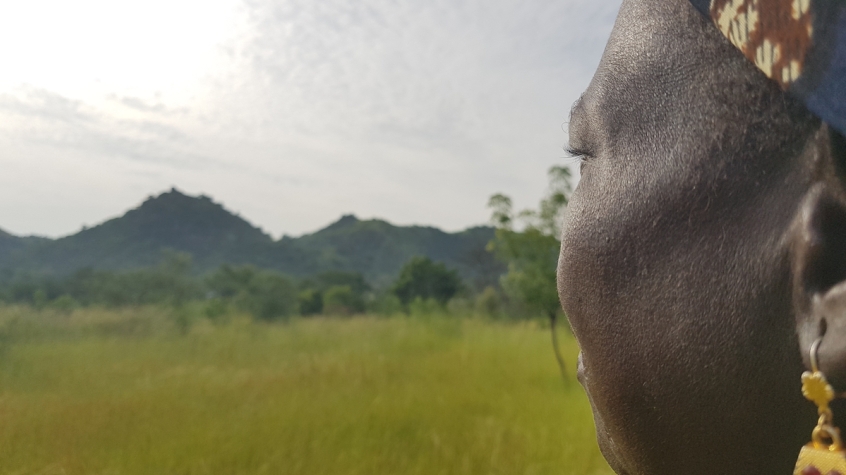
To mark the UN International Day Commemorating the Victims of Acts of Violence Based on Religion or Belief, the tragic story of a community of Christians in the West African nation of Cameroon – told by one woman who is determined that they shouldn't be forgotten.
I am Marie Olinga* and I'm a lecturer in a university in Cameroon. But these days I spend most of the time out of the city in the mountainous villages in the far north of my home country. I have started to volunteer, working with victims of attacks from the Islamist terror group Boko Haram.
I mostly work with women whose lives have been torn apart. I'm offering care for trauma sufferers, for people left devastated by the attacks. As I became more and more involved, I am learning just how much devastation these fighters are causing to innocent lives.
Boko Haram has been operating here in Cameroon for ten years now. They have come across the border from northern Nigeria where they have caused untold suffering to both Christians and Muslims. I am meeting the people whose lives these fanatics are tearing apart day after day.
The name Boko Haram means "Western education is forbidden". For these radicals, if you are a Christian, you are helping to spread damaging western ideas and western education. This is how they see things – it's very confused.
Cameroon is 60% Christian and further south things aren't so bad. However up in the majority Muslim far north, especially around the border with Nigeria, the villages there are going through very tough times.
Some people's lives are at constant risk, but it's not very easy to leave. There are some areas where the Christians must leave their homes and hide every night. Most of this region is located around mountains.
There are villages where during the day, from 9:00 AM to 4:00 PM, you can find signs of life. But after that, every Christian must go and sleep in the nearby mountains. I recently heard of a village in the north where it got dark, and a man forgot to leave the village at the usual time. He was slaughtered and all the family's food supplies were plundered.
There are so many stories about mothers who lost their children. Parents are forced to convert into their extremist form of Islamism. And if you refuse to convert, they will abduct your children. You won't ever know what has happened to them – it's unbearably painful. Some of the children are converted by force and sent back to their families to go and kill the father or the mother if they refuse to convert.
Most of the villagers, when they know they're targeted like this, start moving to other villages. When they have lost everything, they don't know what to do next. They just know their home village is no longer safe for them. They wander from place to place with their children looking for somewhere safer. But there are others refusing to move, especially parents, because they hope the children that they have lost will come back to them. They live there pretending to be a Muslim, just waiting. Others stay because they have no idea where else to go, in spite of the terrible risk they face.
There are some camps for the displaced, but newcomers don't tend to feel welcomed. When they go to camps or when they move to another village, they are stigmatized. Villagers see them as a threat; they feel overwhelmed by so many newcomers who are reducing the few resources they have. Often the displaced families are treated so badly, they prefer to go back home and face their fate.
Boko Haram has burned down most of the churches in these areas. It's a clever move, as the churches were what held the Christian communities together. On top of that many of the pastors have fled for their safety, so all sense of community has been destroyed.
Now it's safer to keep your head down and make sure nobody knows you are a Christian. Sometimes when Muslims are fasting for Ramadan, you will see some believers who will behave as if they're also fasting, walking around with the same Islamic attire.
Because everyone is effectively hiding, and because there is no chance for Christians to gather and work together, it's hard for them to do anything constructive for the future. Their lives are constantly on hold and uncertain. There is no chance to engage in any development projects to rebuild their lives.
They feel doubly alone, because Christians in the south of the country seem to know very little about what's happening to their brothers and sisters in Christ. It is like another world to many of them. I really don't think they understand the seriousness of what is happening in the mountainous far north.
My heart breaks for these persecuted believers when I meet them. They feel utterly powerless and forgotten, even by their neighbours – left to fight for their survival. They need people to stand with them and tell them they aren't alone. They need peace, but while they are hidden from the world's view that seems unlikely."
Marie Olinga was speaking to a member of the Christian charity Open Doors. According to figures compiled for Open Doors' annual World Watch List, Cameroon is one of the five most violent nations for Christians to live.
*Name altered for reasons of security.













